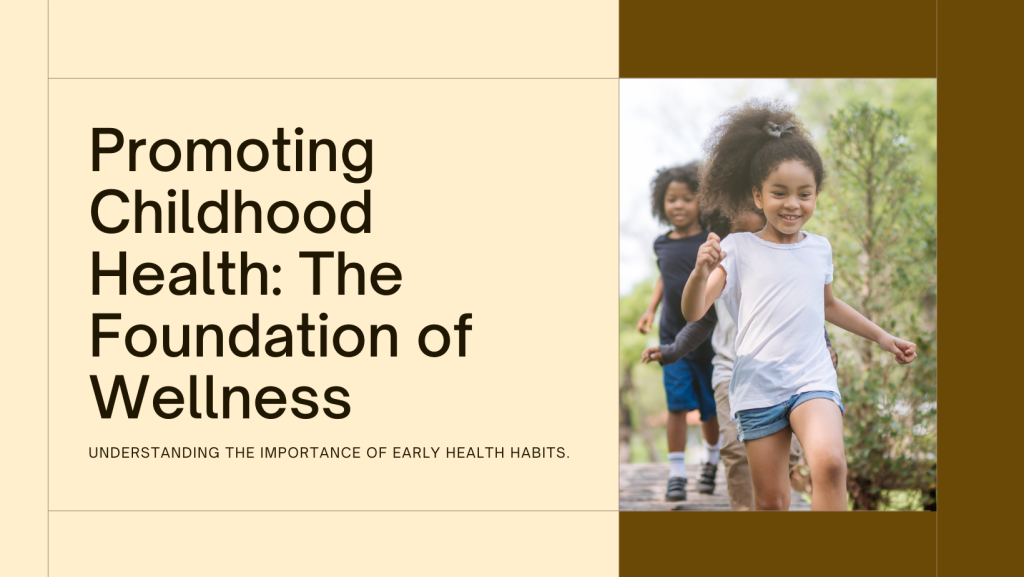Childhood health lays the groundwork for lifelong well-being, influencing physical, mental, and emotional development. As caregivers and educators, it’s crucial to understand the factors that contribute to children’s health and take proactive steps to promote optimal wellness. Here are some key aspects of childhood health and strategies for fostering a healthy lifestyle:
- Nutrition and Diet: A balanced diet is essential for children’s growth and development. Encourage healthy eating habits by providing nutritious meals and snacks rich in fruits, vegetables, whole grains, and lean proteins. Limit sugary drinks and processed foods, and involve children in meal planning and preparation to instill lifelong healthy eating habits.
- Physical Activity: Regular physical activity is vital for children’s overall health and fitness. Encourage active play, outdoor exploration, and participation in sports and recreational activities to promote physical development, coordination, and cardiovascular health. Limit sedentary screen time and prioritize active playtime to keep children engaged and active.
- Sleep Hygiene: Quality sleep is essential for children’s physical and cognitive development. Establish a consistent bedtime routine and create a sleep-friendly environment that promotes relaxation and restful sleep. Ensure children get the recommended amount of sleep for their age to support growth, learning, and emotional well-being.
- Preventive Healthcare: Schedule regular well-child checkups and vaccinations to monitor children’s growth and development and prevent illness and disease. Stay up to date on recommended immunizations and screenings, and consult healthcare providers promptly if you have any concerns about your child’s health or development.
- Emotional Well-Being: Support children’s emotional health by creating a nurturing and supportive environment at home and in school. Encourage open communication, validate their feelings, and teach them healthy coping strategies to manage stress, anxiety, and emotions effectively.
- Hygiene and Safety: Teach children good hygiene habits, such as handwashing, dental care, and personal grooming, to prevent the spread of illness and maintain overall health. Ensure a safe and secure environment by childproofing homes and supervising children during play and activities to prevent accidents and injuries.
- Health Education: Provide age-appropriate health education to children to empower them to make informed choices about their health and well-being. Teach them about the importance of healthy habits, safety practices, and self-care behaviors to foster a lifelong commitment to wellness.
By prioritizing childhood health and implementing these strategies, caregivers and educators can promote the physical, mental, and emotional well-being of children, setting them on the path to a healthy and thriving future.




